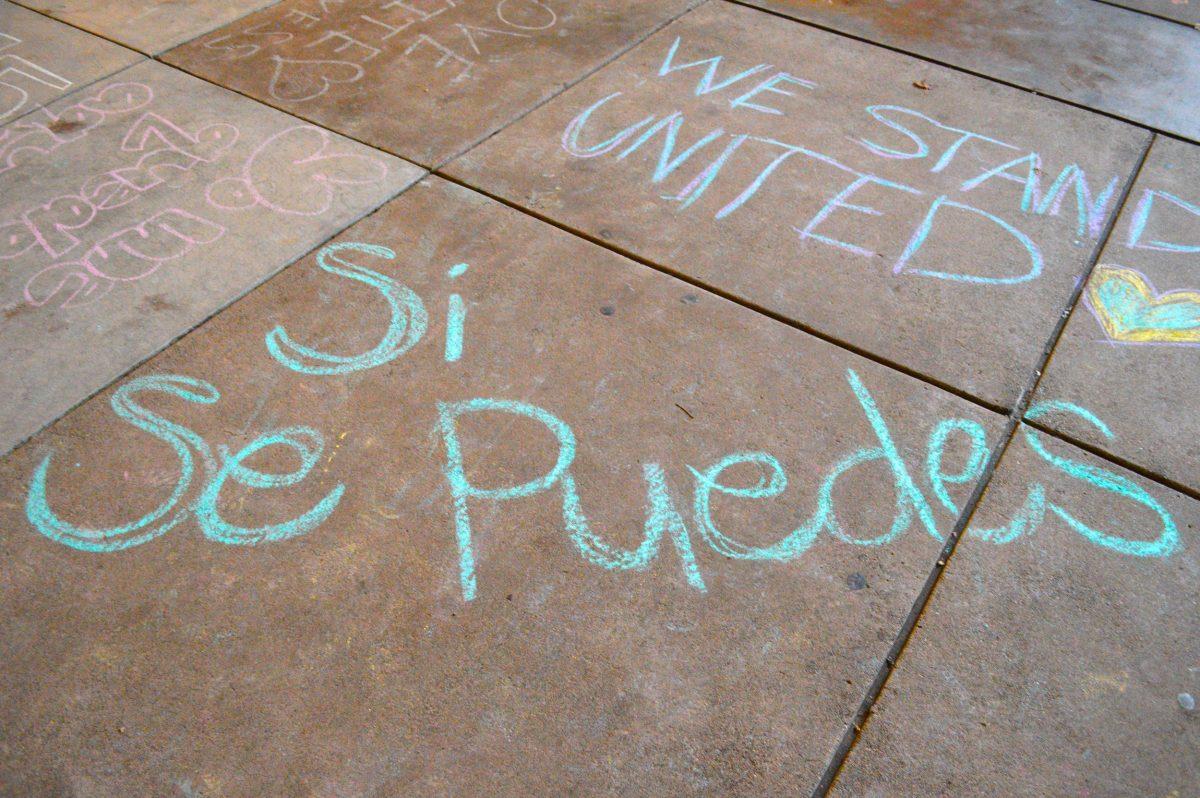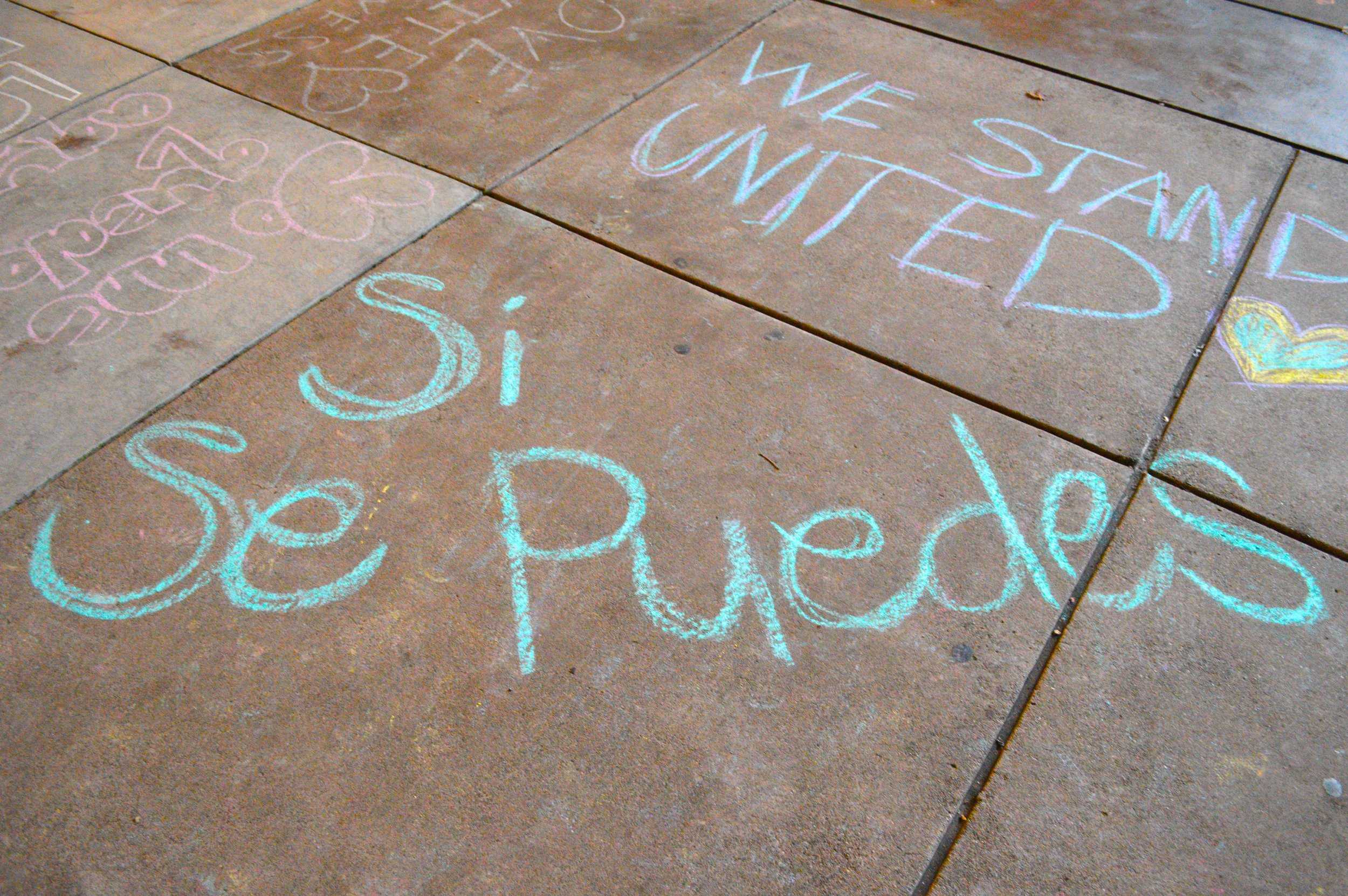After only his first week in office, President Donald Trump is proceeding with executive orders to build a border wall and block immigration opportunities for citizens of several other countries. This has led to worldwide concern over the future of undocumented immigrants in the U.S., including those who are seeking college education.
Despite Trump’s anti-immigration orders, new plans at Sonoma State University, including ongoing talk of opening a Dream Center, will help undocumented students with scholarships and other concerns.
During the fall 2016 semester, 171 of Sonoma State’s 9,408 enrolled students were undocumented, according to a Jan. 17 Santa Rosa Press Democrat article.
A series of small steps over the past few years have made it easier for these students to obtain scholarships.
One step was the passing of the California Dream Act, which allows students without legal immigration status to apply for state-funded financial support, according to Sonoma State’s Financial Aid Office.
Sonoma State students who are not permanent U.S. residents or citizens by birth can apply for the California Dream Application instead of the Free Application for Federal Student Aid.
The most recent of these steps came on Dec. 7 when Sonoma State partnered with TheDream.US, a national scholarship fund that has given $14 million in scholarships to 1,700 students nationwide since 2014.
Mariana Martinez, Santa Rosa Junior College Board of Trustee member and research coordinator for the McNair Scholars Program, said that financial support offered through TheDream.US is helpful for undocumented students who may need help with expenses not covered by the Dream Act or other scholarships.
“It’s trying to put you in the same playing field as other students,” Martinez said.
Undocumented students in California already benefit from AB540, Martinez said.
This qualifies them for in-state tuition if they can prove they graduated from high school and plan to pursue higher education.
Martinez serves as the faculty adviser for the Undocu-Scholars Coalition, a student-organized club which provides guidance for undocumented peers and incoming students who are applying for TheDream.US services. Current Sonoma State students helping their peers through this program will not get to utilize the benefits of TheDream.US, Martinez said. These services are geared toward undocumented incoming freshmen and transfer students and will not take effect until the fall 2017 semester.
“It’s coming at a very critical time for Sonoma State, because of the change in the presidential administration and so on,” Martinez said. “Because it’s also composed of an advisor/mentor to ensure that the students are keeping up with their grades and so on, I think that’s pretty unique and important.”
Martinez works in this club alongside Ariana Aparicio, an academic advisor for undeclared students and those from the school of science and technology.
Aparicio, who will soon serve as scholar adviser for Sonoma State’s partnership with TheDream.US, said it is a “passion of mine” to give emotional support to these students in addition to academic advice.
“Oftentimes, these students are held at a high expectation to excel academically, and… whoever it is that they interact with don’t understand the entirety of what it is like for students on undocumented immigration status to maneuver a higher education system,” Aparicio said.
The impending advantages provided by TheDream.US may motivate current students to encourage their friends and relatives to enroll at Sonoma State, Aparicio said.
There are still additional services yet to be provided for undocumented students, Aparicio said. During a September 2015 speech, former SSU President Ruben Armiñana announced that Sonoma State would have a Dream Center — an office providing service specifically for undocumented students — by fall 2016, but the office is still not open.
Martinez said there is a revamped proposal in place for the Dream Center, but space limitations and the search for staffing complicate the process. The Undocu-Scholars Coalition checks in with Michael Young, interim vice president of student affairs, and Bill Kidder, associate vice president and chief of staff for the Office of the President, at least once a month for status updates on the Dream Center’s creation.
Gustavo Flores, senior director of enrollment management, said that hardworking undocumented students are eligible to succeed at a university like Sonoma State, despite some U.S. citizens’ misconceptions.
“They have earned their way to a major university,” Flores said. “These are some of the best and brightest, and we just can’t shut the door on them.”
Flores is the admissions liaison for Sonoma State’s partnership with TheDream.US, which Kidder oversees. Flores said he reviews applications from the CSU system to ensure incoming students have all the materials they need — including a fee waiver, transcripts, test scores and a written appeal for TheDream.US.
“I look and read each and every one of these as they come in and make a decision as to whether we’re going to be able to review their application in the office of admissions,” Flores said.
Flores, once an undocumented and first-generation college student himself, said today’s students have educational resources and opportunities that his generation did not.
“My children today, they know how to go to the university… they know how their schooling is going to be financed, they have the utmost support for them to pursue this,” Flores said. “As a kid, I didn’t have any of this. It was me finding out on my own how to do this.”
Kidder said that Sonoma State’s partnership with TheDream.US is one of this generation’s essential educational resources.
“This partnership is important because these students’ dreams are our dreams,” Kidder said.




































